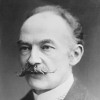“ Nature, which formed men for that mutal kindness, so necessary for their happiness, renders every man the peculiar object of kindness, to the persons to whom he himself has been kind. ”
Adam Smith, The Theory of Moral Sentiments (1759). copy citation
| Author | Adam Smith |
|---|---|
| Source | The Theory of Moral Sentiments |
| Topic | kindness happiness |
| Date | 1759 |
| Language | English |
| Reference | |
| Note | |
| Weblink | https://en.wikisource.org/wiki/The_Theory_of_Moral_Sentiments |
Context
“Of all the persons, however, whom nature points out for our peculiar beneficence, there are none to whom it seems more properly directed than to those whose beneficence we have ourselves already experienced. Nature, which formed men for that mutal kindness, so necessary for their happiness, renders every man the peculiar object of kindness, to the persons to whom he himself has been kind. Though their gratitude should not always correspond to his beneficence, yet the sense of his merit, the sympathetic gratitude of the impartial spectator, will always correspond to it. The general indignation of other people, against the baseness of their ingratitude, will even, sometimes, increase the general sense of his merit.”
source



